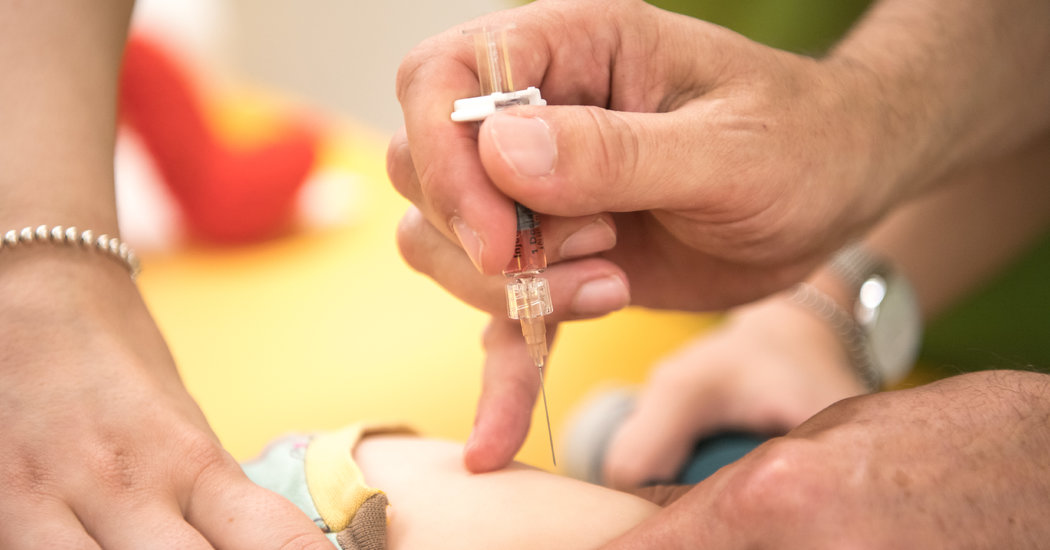
BERLIN — Parents in Germany must vaccinate their children against measles or face fines of several thousand euros under a law passed on Thursday that aims to stop the spread of a disease that has returned in recent years after decades of decline.
The law, which is to take effect from March next year, will require all children seeking to attend preschool to prove that they have been immunized or risk losing their placement. Children aged 6 and older, who are required by law to attend school, must also show proof of having received a vaccine.
Health officials in Germany have recorded 501 cases of measles this year, despite the existence of vaccines that are proven to be safe and effective. According to the World Health Organization, outbreaks of the disease have increased in recent years across the globe, including in developed countries where it had largely been eradicated.
In an address to Parliament before the vote in favor of the law, Jens Spahn, Germany’s health minister, called measles an “unnecessary risk” and rejected criticism that the measure infringed on individual rights.
“My understanding of freedom does not stop at my level as an individual,” Mr. Spahn said. “It is also a question of whether I am unnecessarily putting others at risk.”
“Freedom also means that I will not be unnecessarily put at risk and that is precisely why, from the point of view of preserving freedom, this law is a good law, because it protects freedom and health,” he added.
Under the law, immunizations will also be required for adults born after 1970 who work with children in public institutions, such as day care centers, schools or hospitals. Exceptions will only be allowed for medical reasons and only a doctor can grant them.
Older children already in school will have until July 31, 2021, to prove that they have been vaccinated. Schools and other public institutions will have to report parents who refuse to immunize their children to local health authorities, which will then be authorized to take action on a case-by-case basis.
In extreme cases, parents could face fines of up to 2,500 euros, or about $2,750, for failing to comply.
Globally, the measles vaccine is estimated to have saved 21 million lives between 2000 and 2017, according to data cited by the Centers for Disease Control and Prevention in the United States. But there are still more than seven million cases and 100,000 deaths a year, the agency noted, many in developing countries where people lack access to the vaccine. Most who die are children younger than 5.
Even in developed countries, outbreaks have flared up in recent years as a growing number of parents have refused vaccination. Some claim religious reasons, and some mistakenly fear a link to autism, based on research that has been discredited as fraudulent.
In the first half of this year, the number of measles cases across Europe reached about 90,000, double the total in the same period in 2018, the World Health Organization said in August.
Albania, Britain, the Czech Republic and Greece, which had declared measles eliminated, joined 12 other nations — including France, Germany, Poland, Romania and Russia — where the disease is now considered by the organization to be endemic.
Even in European countries where vaccination against measles is already required, including Bulgaria, France, Italy, Croatia, Czech Republic, Hungary, Latvia, Poland, Slovakia and Slovenia, the number of cases has been on the rise.
The disease has also been resurgent in the United States, with 1,261 individual cases of measles confirmed in 31 states so far in 2019, the C.D.C. reported this month.
A measles vaccination involves two injections, the first usually given when children are 1 year old and the second when they are 4. The same shots (commonly referred to as the M.M.R. vaccine) include protection against mumps and rubella, and a newer version also protects against chickenpox.

